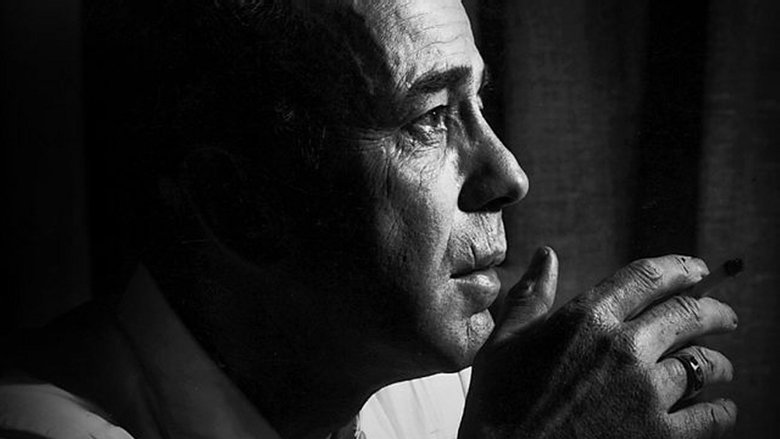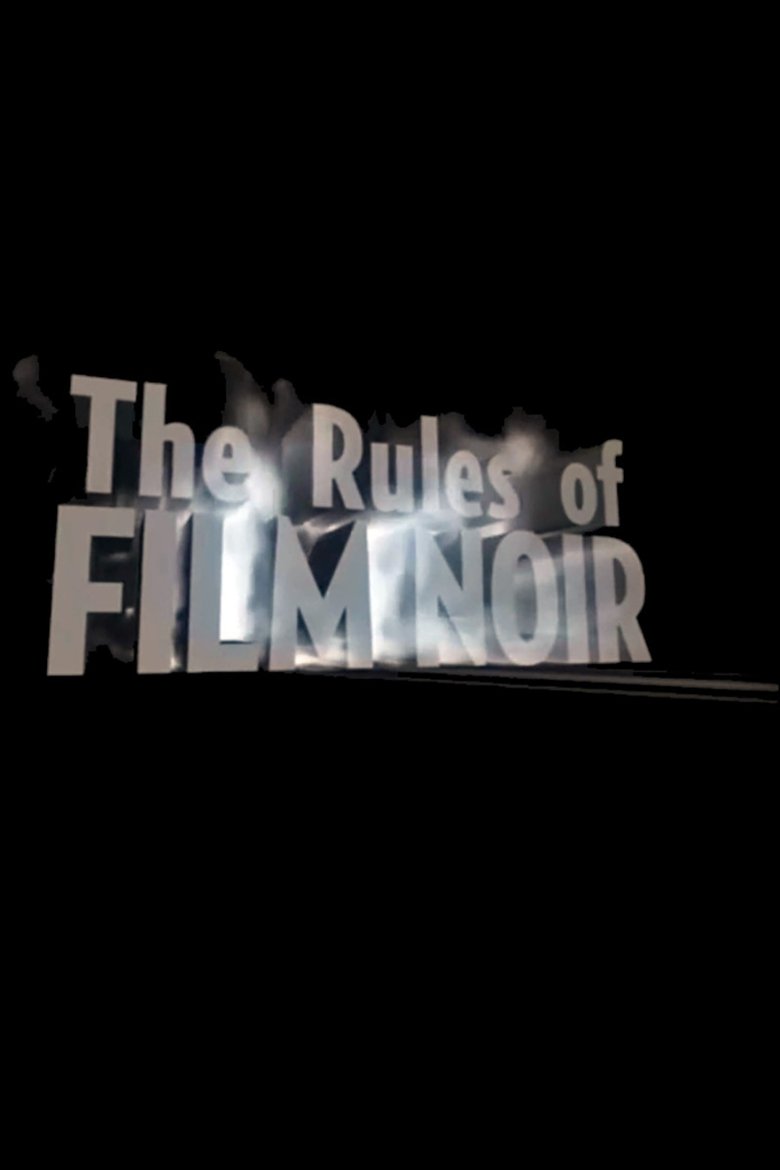

The Rules of Film Noir
Genres
Overview
Matthew Sweet explores his rules of 1940s and 50s American film noir thrillers.
Details
Budget
$0
Revenue
$0
Runtime
60 min
Release Date
2009-08-22
Status
Released
Original Language
English
Vote Count
13
Vote Average
6
Matthew Sweet
Self - Presenter
Sheri Chinen Biesen
Self - Author, Blackout: World War II & Origins of Film Noir
Neil Brand
Self
Sarah Churchwell
Self
Roger Deakins
Self
John Mathieson
Self
George Pelecanos
Self
Paul Schrader
Self
Adrian Wootton
Self - Director of Crime Scene Festival
0.0
We Want the Airwaves
Hollywood is perhaps the most elusive animal. "We Want the Airwaves" follows three first time TV makers who set out on the ultimate adventure: to change television as we know it. The trio creates, films and pitches their advocacy docuseries masterpiece, "Manifesto!" all over the world, with the goal of giving a broadcast voice to a generation.
2022-06-28 | en
6.7
Loose Change
2nd Edition of Loose Change documentary. What if...September 11th was not a surprise attack on America, but rather, a cold and calculated genocide by our own government?We were told that the twin towers were hit by commercial jetliners and subsequently brought down by jet fuel. We were told that the Pentagon was hit by a Boeing 757. We were told that flight 93 crashed in Shanksville, Pennsylvania. We were told that nineteen Arabs from halfway across the globe, acting under orders from Osama Bin Laden, were responsible. What you will see here will prove without a shadow of a doubt that everything you know about 9/11 is a complete fabrication. Conspiracy theory? It's not a theory if you can prove it.Written and narrated by Dylan Avery, this film presents a rebuttal to the official version of the September 11, 2001 terrorist attacks and the 9/11 Commission Report.
2005-12-11 | en
7.1
Filmworker
The story of Leon Vitali, who surrendered his promising acting career to become Stanley Kubrick's devoted right-hand man.
2018-05-11 | en
4.8
Bruce Lee: Tracking the Dragon
Bruce Lee expert John Little tracks down the actual locations of some of Bruce Lee's most iconic action scenes. Many of these sites remain largely unchanged nearly half a century later. At monasteries, ice factories, and on urban streets, Little explores the real life settings of Lee's legendary career. This film builds on Little's earlier film, Pursuit of the Dragon, to present a comprehensive view of Lee's work that will change the way you see the films.
2016-10-25 | en
7.0
Symbiopsychotaxiplasm: Take One
In Manhattan's Central Park, a film crew directed by William Greaves is shooting a screen test with various pairs of actors. It's a confrontation between a couple: he demands to know what's wrong, she challenges his sexual orientation. Cameras shoot the exchange, and another camera records Greaves and his crew. Sometimes we watch the crew discussing this scene, its language, and the process of making a movie. Is there such a thing as natural language? Are all things related to sex? The camera records distractions - a woman rides horseback past them; a garrulous homeless vet who sleeps in the park chats them up. What's the nature of making a movie?
1968-10-28 | en
0.0
Tales from Zone 7 - An Oral History of the Making of Cherry 2000
A documentary on the making of Steve De Jarnatt's 1987 film, Cherry 2000.
2024-12-31 | en
0.0
Royal Wedding: June, Judy and Jane
When Arthur Freed brought Alan Jay Lerner to Hollywood to compose a new Fred Astaire musical (based on Fred's life,) little did he know he would have to recast it's leading lady not once, but twice.
2007-07-24 | en
0.0
Our Inflammable Film Heritage
Introduction to an extensive training program for everyone professionally involved in the process of film conservation and film restoration. The realization of this training program was initiated and coordinated by ECIPAR (Bologna-Italy) and the Cineteca del Comune di Bologna. It was produced in co-operation with eleven European film archives and film laboratories and co-financed by the FILM project - FORCE program of the European Community.
1994-01-01 | en
0.0
An Appreciation of Stageocach with Peter Bogdanovich
An appreciation of Stagecoach, with director and Ford biographer Peter Bogdanovich.
2010-05-25 | en
0.0
Taste of Shirin
A short documentary about the making of Abbas Kiarostami's 'Shirin'.
2008-12-12 | fa
0.0
Mehrjui: The Forty-Year Report
Mehrjui: The Forty-Year Report dives into the artistic world of Iranian director Dariush Mehrjui. The film offers critical interpretations of his works from cinema experts, enriched with personal anecdotes from his peers.
2016-07-04 | fa
0.0
Hong Kong Stories
A documentary about Hong Kong cinema mythology via Julien Carbon and Laurent Courtiaud’s experience as screenwriters in the HK film industry, working for Wong Kar-wai, Tsui Hark, Daniel Lee and Johnnie To
2003-01-01 | fr
0.0
The Costume Designer
This short focuses on the job of the costume designer in the production of motion pictures. The costume designer must design clothing that is correct for the film historically and geographically, and must be appropriate for the mood of the individual scene. We see famed costume designer Edith Head at work on a production. The Costume Designer was part of The Industry Film Project, a twelve-part series produced by the film studios and the Academy. Each series episode was produced to inform the public on a specific facet of the motion picture industry. Preserved by the Academy Film Archive in 2012.
1950-07-13 | en
7.9
To Hell and Back: The Kane Hodder Story
To Hell and Back: The Kane Hodder Story is the harrowing story of a stuntman overcoming a dehumanizing childhood filled with torment and bullying in Sparks, Nevada. After surviving a near-death burn accident, he worked his way up through Hollywood, leading to his ultimate rise as Jason Voorhees in the Friday the 13th series and making countless moviegoers forever terrified of hockey masks and summer camp. Featuring interviews with cinema legends, including Bruce Campbell (Ash vs. Evil Dead), Robert Englund (Freddy Krueger), and Cassandra Peterson (Elvira: Mistress of the Dark), To Hell and Back peels off the mask of Kane Hodder, cinema's most prolific killer, in a gut-wrenching, but inspiring, documentary. After decades of watching Kane Hodder on screen, get ready to meet the man behind the mask in To Hell and Back - an uniquely human story about one of cinema's most vicious monsters.
2017-08-26 | en
6.9
The Blade Runner Phenomenon
Ridley Scott's cult film Blade Runner, based on a novel by Philip K. Dick and released in 1982, is one of the most influential science fiction films ever made. Its depiction of Los Angeles in the year 2019 is oppressively prophetic: climate catastrophe, increasing public surveillance, powerful monopolistic corporations, highly evolved artificial intelligence; a fantastic vision of the future world that has become a frightening reality.
2021-05-27 | de
6.3
Roundhay Garden Scene
The earliest surviving celluloid film, and believed to be the second moving picture ever created, was shot by Louis Aimé Augustin Le Prince using the LPCCP Type-1 MkII single-lens camera. It was taken in the garden of Oakwood Grange, the Whitley family house in Roundhay, Leeds, West Riding of Yorkshire (UK), possibly on 14 October 1888. The film shows Adolphe Le Prince (Le Prince's son), Mrs. Sarah Whitley (Le Prince's mother-in-law), Joseph Whitley, and Miss Harriet Hartley walking around in circles, laughing to themselves, and staying within the area framed by the camera. The Roundhay Garden Scene was recorded at 12 frames per second and runs for 2.11 seconds.
1888-10-14 | en
7.1
This Film Is Not Yet Rated
Kirby Dick's provocative documentary investigates the secretive and inconsistent process by which the Motion Picture Association of America rates films, revealing the organization's underhanded efforts to control culture. Dick questions whether certain studios get preferential treatment and exposes the discrepancies in how the MPAA views sex and violence.
2006-01-26 | en
7.2
Electric Boogaloo: The Wild, Untold Story of Cannon Films
A documentary about the rise and fall of the Cannon Film Group, the legendary independent film company helmed by Israeli cousins Menahem Golan and Yoram Globus.
2014-10-06 | en
6.7
The Death of "Superman Lives": What Happened?
The Death of 'Superman Lives': What Happened? feature film documents the process of development of the ill fated "Superman Lives" movie, that was to be directed by Tim Burton and star Nicolas Cage as the man of steel himself, Superman. The project went through years of development before the plug was pulled, and this documentary interviews the major filmmakers: Kevin Smith, Tim Burton, Jon Peters, Dan Gilroy, Colleen Atwood, Lorenzo di Bonaventura and many many more.
2015-05-01 | en
8.5
Rif 1921, una historia olvidada
Manuel Horrillo has visited for 7 years the fields where the clashes between the Spanish troops and the rebels of the protectorate took place during the so-called Rif War, a forgotten war of the Spanish collective imaginary.
2008-07-24 | es